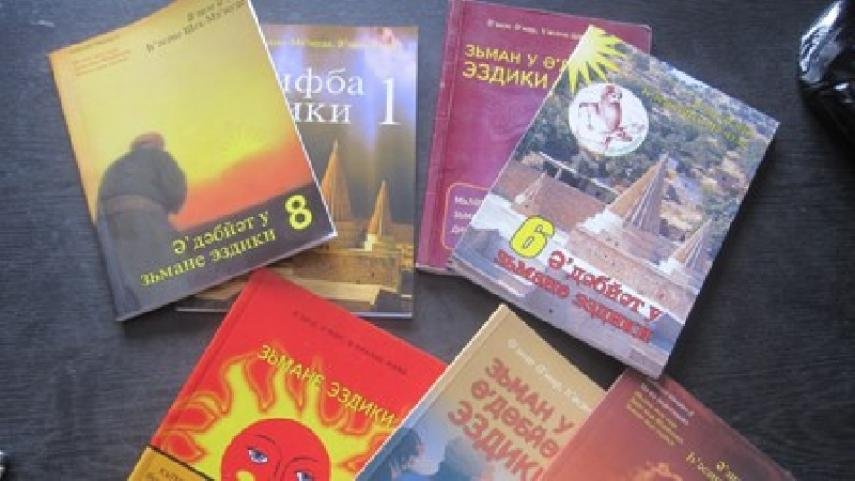NON-GOVERNMENTAL ORGANIZATION
There is a need of Yezidi language specialists

Yezidi language
is not taught at all schools for Yezidi communities in Talin region of
Aragatsotn marz. Though the RA Legislation ensures the education right of
national minorities (also in their mother tongue), there are children in Yezidi
communities who can’t read and write in Yezidi language. The main reason is the
absence of specialists.
The issue was revealed
by the office of Talin Area Development Programs of World Vision - Armenia and
by “Talin-Hope” NGO, “Civil Society Institute” and Helsinki Committee in
Armenia, within the frameworks of “Grassroots Voices for Human Rights Mobilization
in Armenia” program.
From May to
September, 2011, a monitoring was held in 8 villages of Talin region (Ddmasar,
Sorik, Hako, Kanch, Arevut, Otevan, Metsadzor, Tlik) within the frameworks of
“The Right of Education in Yezidi Communities” program. All these are Yezidi homogeneous villages
where primary schools are operating. The total number of the students of eight schools is 111.
“The teaching of
Yezidi language is carried out only in 7 communities. The students from Ddmashar community cannot read
and write in their mother tongue because it is already eight years the Yezidi
language has not been taught because of not having a specialist. Yezidi
language has not been taught in Hako community for three years as the teacher
has left to Russia” says the President
of “Talin-Hope” NGO Anahit Abgaryan.
According to the
results of monitoring the teachers of Yezidi language are mostly people who
live in that community and have at least high
school education. Only in two communities there are teachers of Yezidi language
with university education who also teach
other subjects.
Khatun
Harutyunyan, headmistress of primary school of Arevut, said that after the
death of the Yezidi language teacher they have no specialist. “ There is no one even with high school education who knows Yezidi
language well and can teach” says the Headmistress.
As a temporary
solution to the problem 22-year-old man
teaches Yezidi language at school. “We have chosen a graduate student from our
school who studied well at school. He teaches in groups for 6 hours per week
and receives AMD 20.000 salary. But it is also doubtful because the school is
financed by the number of the students (we have 17 students and a little funding)
and maybe there comes a time when we cannot provide it”- expresses her concern
Khatun Harutyunyan. She is not pleased with the quality of teaching Yezidi
language because the teacher has no professional skills and cannot plan the
lesson properly.
According to the Head of “Talin-Hope” NGO the
headmasters and teachers are not satisfied with the content of Yezidi language
textbooks and they think they are not interesting for students. During the
inquiry rare students mentioned that they liked the subject of Yezidi language.
According to the estimation of the monitoring the
level of education is rather low in all Yezidi communities of Talin region. In
parents’ opinion the reason is non-sufficient conditions of the school. And the
teachers claim that Yezidis do not pay importance to education and the parents
are not consistent in their children’s learning.
The inquiries made in frames of monitoring also
confirm this. To the question “Will you continue your education in future?”
nobody could answer surely “yes”. Though the parents noted that they paid
importance to school and education, to the question “Will your children
continue their education?” they mainly answered “no”.
Anahit Abgaryan explains the low interest in education
with the national peculiarities of Yezidis. Boys are engaged in cattle-breeding
from a very young age, thus helping their parents. And the girls marry in a
young age and becoming housewives.
There is an essential argumentation of one of the
parents concerning the ongoing education. “If our children are to suffer and so
are we , there is no sense to continue
studying, as they will have to raise the
cattle in the end, because there is nothing else to do”.
Mery Alexanyan
Source: www.hra.am

